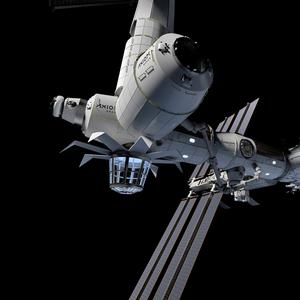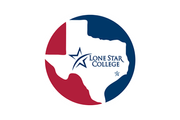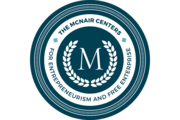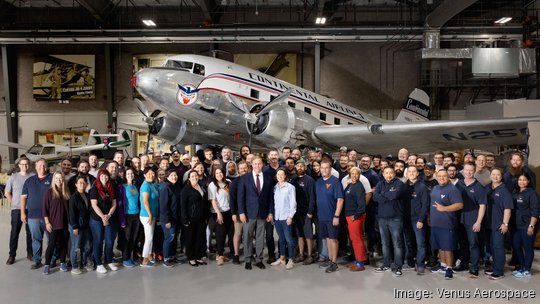
A Houston-based aerospace company with designs on hypersonic transport brought on a new investor as it aims for an end-of-year milestone for its rocket engine technology.
Venus Aerospace revealed details of a partnership between the company and Airbus Venture on June 14. European aerospace company Airbus is a limited partner in the venture fund.
Venus CEO and co-founder Sassie Duggleby told Houston Inno that talks between Venus and Airbus Ventures began approximately a year ago and that the venture fund did its due diligence in reviewing Venus’ test drones and engine designs.
“For them to come in and say, 'Yes, we believe in Venus, and we're excited to come on this journey,' it's really exciting for us,” she said. “We've got some of the world's best investors, in our opinion, and it just continues to kind of add to those ranks.”
Duggleby confirmed that Venus is raising another funding round, and the company filed a Form D with the Securities and Exchange Commission in early June with $15.9 million in equity funding. She could not disclose the targeted amount for the round, citing SEC regulations.
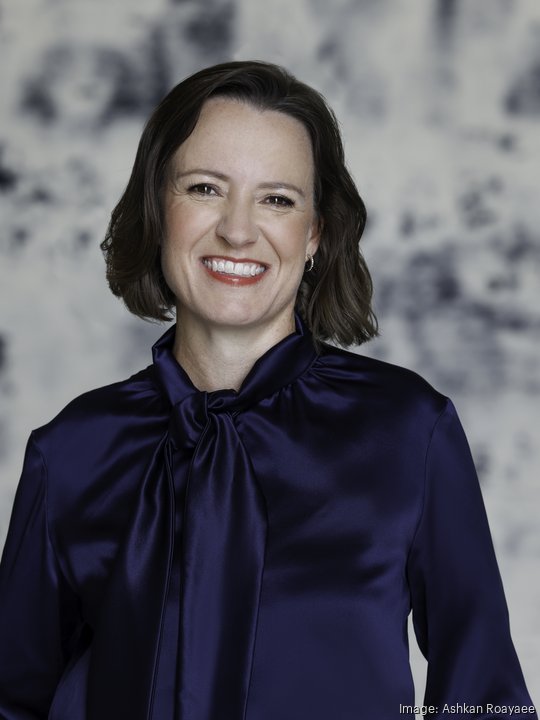
Venus Aerospace aims to develop a hypersonic aircraft capable of ferrying 12 passengers around the globe at nine times the speed of sound. In 2022, the growing aerospace company raised $20 million in Series A financing to further develop its next-generation rocket engine and the design of its aircraft.
Venus’ engine is the first liquid-propellant rotating detonation rocket engine, or RDRE, according to Duggleby. The technology uses rotating explosive shock waves to ignite fuel and generate thrust, and Venus CTO and co-founder Andrew Duggleby said the engine can generate significantly more thrust with the same amount of fuel as conventional engines.
In the June 14 announcement, Airbus Ventures Managing Partner Thomas d’Halluin described several possible applications for the company’s technology.
"Venus' compact, low-mass, high-efficiency engine capability will have an immediate impact on lunar and martian landers, space mobility and logistics, and deep space mission proposals,” d’Halluin said. “Here on Earth today, we will see unprecedented performance gains for drones of all kinds and more practical and faster-than-anticipated opportunities for ultra-high-speed passenger and cargo rocket plane flights."
Before building a Mach 9 hypersonic plane, Venus is starting a bit smaller and slower. The Dugglebys confirmed the completion and tests of their subsonic drone, and they are on course to complete their first supersonic drone in December. Andrew Duggleby confirmed the company is seeking out suitable test locations due to regulations on overland supersonic flight in the United States.
"With the strong support of Airbus Ventures now joining our investor syndicate, our next round will let Venus take the final step from lab to prototype as we fly our drone to Mach 3 under RDRE power,” Andrew Duggleby said in the announcement. “This will include long-duration engine runs this summer at Spaceport Houston, as well as the design, build, and flight of our drone with the broader Venus team and our incredible partners.”
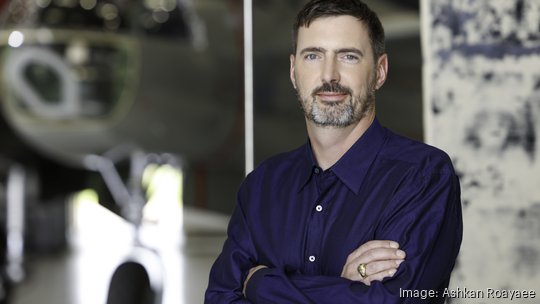
Venus is also working with Windhover Labs in Texas City on developing flight control software to create systems for hypersonic vehicles.
Both Dugglebys worked at California-based Virgin Orbit before founding Venus in 2020. They brought the company to the Houston Spaceport at Ellington Field in January 2021. The company currently operates out of a 30,000-square-foot hangar.
Venus currently employs between 75 and 80 people, and the Dugglebys said the company does not have immediate plans to expand the team.
“We’re pretty complete; we’ve got the right people in the right areas,” Andrew Duggleby said. “We make engines, and we make vehicles and go fly. And that’s a phenomenal thing.”
Venus’ continued development is a boost for the aerospace economy in Houston and in Texas. Accounting firm PriceWaterHouseCoopers named the Lone Star State No. 1 in the nation for aerospace activities, highlighting NASA’s Johnson Space Center in Houston and the Spaceport.
The report also highlighted Houston-based companies making a mark, such as Axiom Space, which recently completed its second private space mission to the International Space Station, where its four-person crew conducted research on human body tissue and space technology. Axiom Space is also building out a headquarters at the Spaceport to produce its commercial space station, the Axiom Station.
Another Houston-based company with a presence at the Spaceport, Intuitive Machines (Nasdaq: LUNR), went public earlier in 2023 through a deal with special-purpose acquisition company Inflection Point Acquisition Corp. During Intuitive Machines' first-quarter earnings call in May, CEO Steve Altemus said the company's lunar lander had completed all structural tests and was prepared for its first mission to the moon in 2023.
